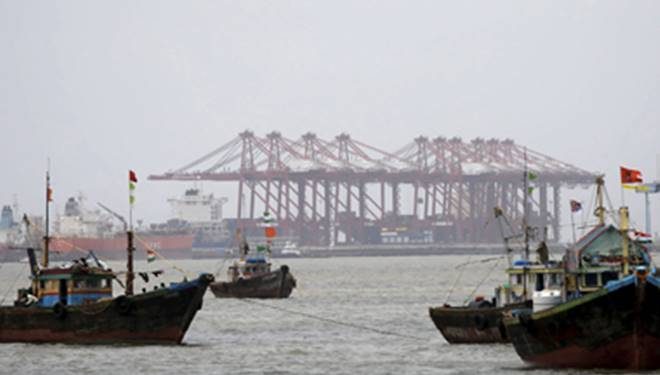Bhubaneswar: The ambitious plan of the Ministry of Shipping to create a coastal pathway along the Indian coasts to pave way for the regular movement of ships along the coastline to transport industrial raw materials among different Indian states has come under environmental radar.
Many environmentalists and experts working in the sector believe that with the constant flow of ships along the coastline, the livelihood of the fishermen community— engaged in fishing and related activities— are likely to be hit as this might disrupt the fish density near the coasts.
Environmentalist Jaya Krushna Panigrahi said, “The sea coasts are already over-exploited. Climate change and pollution already pose a threat to them. With more ship movement under the scheme, the burden on the sea coast, its biodiversity and lives of fish are likely to be threatened. The coral reef ecosystem of the sea is also going to be affected with the acidification process which is already happening.”
“With the constant movement of ships along the Indian coasts under the scheme, it is likely that the density of the fish near the coastline will be disrupted. The movement of ships can drive the fish deeper into the sea,” said a climate change expert requesting anonymity.
He also added, “The fishermen may be forced to go deeper into the sea to search for fish which not only increase their time at sea but also puts them at a risk of losing contact through GPS and pose danger to their lives too.”
According to the draft perspective plan for coastal economic zone, the ministry of shipping had earlier proposed to convert the major port of Odisha from the state into a steel cluster from which the surplus steel could be easily transported through sea to the southern and western parts of the country as the ministry believes coastal shipping could be cheaper than transporting the same through roads and rail.
According to the draft plan, the surplus steel from Odisha and Jharkhand could be transported through coastal shipping from Paradip which can help in transporting the same from Paradip to ports like Vizag, Chennai, Cochin, Mumbai and Mundra in Gujarat.
The Ministry of Shipping, in its earlier reply to the media, had claimed that if surplus coal from Odisha (through Paradip port) could be sent via sea route to western parts of the country like Maharastra and Gujarat for their power plants, it can save `10,000 crore per year. Due to this, power tariffs in Gujarat and Maharashtra are likely to be reduced by `50 paise-`60 paise.”
The Sagarmala project envisions using sea routes to transport essential raw materials and other commodities from surplus states to different parts of the country through connecting major and minor ports of the country along the coastlines.
Chaos & Order
US President Donald Trump has created chaos in international trade and economic order through his skewed and short-sighted tariff war....
Read more





































